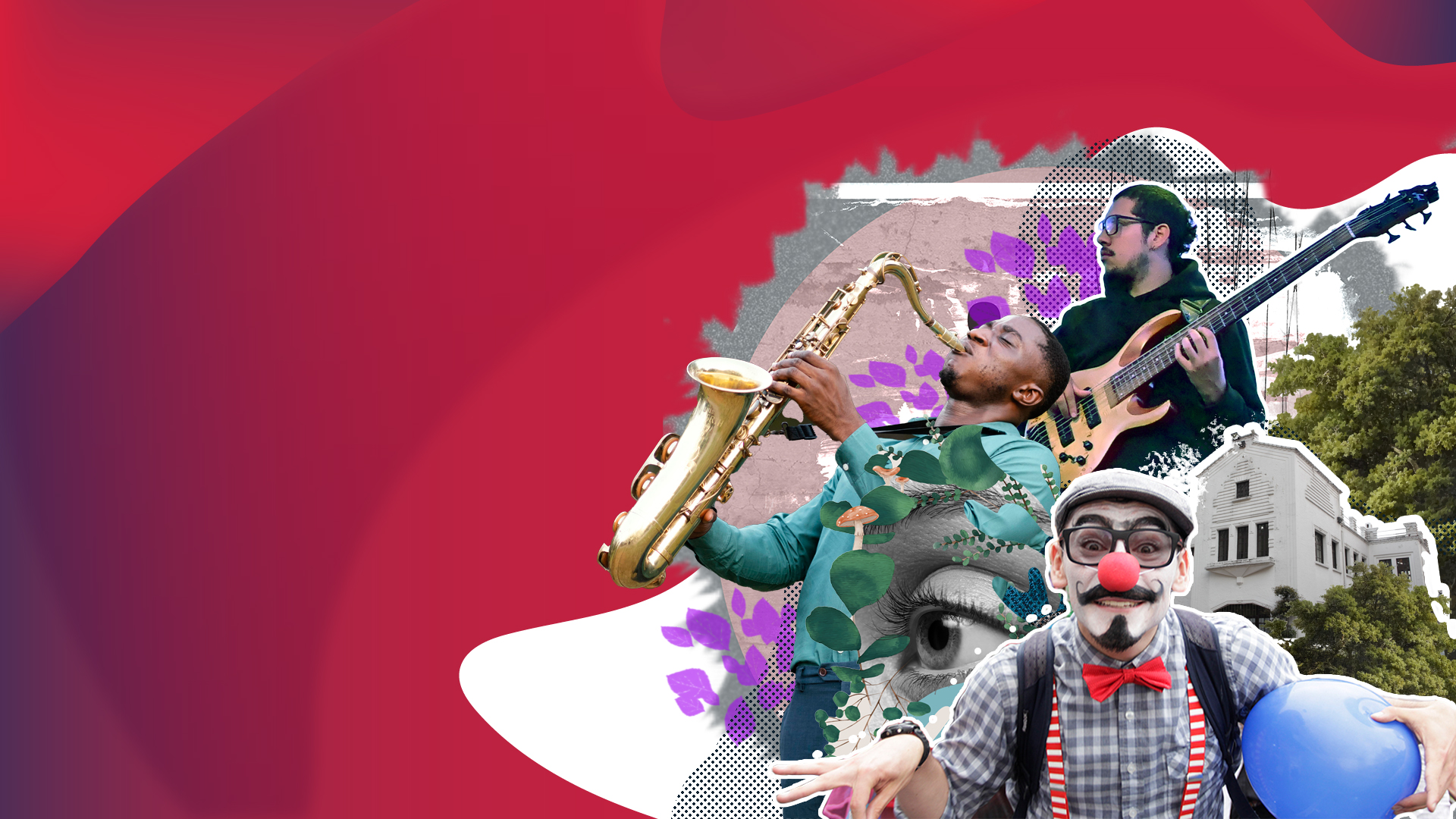The Bachelor’s Degree in Visual Arts considers educational practice as a space for training, inquiry and acquisition of disciplinary knowledge that connects pedagogy with the field of visual arts, as well as the place where teachers in training have the opportunity to understand the educational contexts and the particular demands they require: how to enrich the didactic action; generate spaces of recognition between the contexts and subjects of education; as well as to problematize and reflect on being a teacher.
The program has a comprehensive offer of practice centers where the teacher in training can go according to the curriculum, line of study and particular interest. The LAV contemplates three types of centers approved by the program to respond to the educational objectives of the students. The first are the schooled spaces, essentially public and private entities of elementary and middle school education. These centers represent the base scenario for the teaching and pedagogical experimentation of LAV students. The second typology entitled Social Responsibility are organizations that focus their educational activities from the combination of visual arts, community, popular, environmental education, and other processes of pedagogical attention to vulnerable populations. Finally, the third typology called Mediation Spaces includes centers, such as museums, art galleries and other cultural institutions that carry out artistic mediation activities, which focus on the disciplinary practice of the visual arts professional.
Career center
Instituto Pedagógico Nacional (IPN)
It is an academic administrative unit of the Universidad Pedagógica Nacional (UPN for its acronym in Spanish) a space for innovation, research and teaching practice, leading pedagogical processes in formal education, special education and education for work and human development of children, adolescents and adults. To accomplish this goal, the school partners with the Universidad Pedagógica Nacional to provide classroom assignments for all levels of education, including preschool, elementary, and middle school. Additionally, the school provides a working space for special education.
Formal school spaces
IED Víctor Charry
The Justo Victor Charry School is an official educational institution that has a specific focus on developing communication skills in children and adolescents who attend the school. The institution’s primary objective is to train young people to have civic culture and leadership in communication through the meaningful learning approach, which will enable them to access university and/or the workforce and social fields through the stimulation of creativity. To accomplish this goal, the school partners with the UPN to provide classroom assignments for all levels of education, including preschool, elementary, and middle school. Additionally, the school provides a working space for special education.
IED María Montessori
The Escuela Normal Superior Distrital María Montessori is an official educational institution which is committed to the integral formation of teachers. National reference in the initial education of teachers for children in diverse contexts. There, teachers in training from the UPN develop classroom assignments with all levels of education: preschool, elementary and middle school, in addition, there is a working space for special education.
Pastorcitos de Fátima
Pastorcitos de Fátima School is a private educational institution whose mission is to train its students within the guidelines of academic excellence, based on the experience of values and the implementation of English in each of the areas that allows them to project themselves as a person who achieve a better quality of personal and community life. To accomplish this goal, the school partners with the UPN to provide classroom assignments for all levels of education, including preschool, elementary, and middle school. Additionally, the school provides a working space for special education.
Isabel II
The Isabel II School is an official educational institution focused on deaf and hearing students, which promotes the use of information technologies, the development of communication skills and care for the environment in an inclusive educational system that stands out for the permanent dynamization of the life project of the students, which encourages relevant transformations for today’s society. To accomplish this goal, the school partners with the UPN to provide classroom assignments for all levels of education, including preschool, elementary, and middle school. Additionally, the school provides a working space for special education.
Informal school spaces
Nursery school
The Nursery School of the Universidad Pedagógica Nacional is an innovative educational project that caters to the needs of early childhood development. It primarily serves children from low-income households, including those of university students and employees, who are mostly single mothers. Additionally, it functions as a hub in the field of early childhood education in Colombia, fostering dialogue and discussion about training practices in such settings. The bachelor’s degree in visual arts students who are in training at the Universidad Pedagógica Nacional also participate in the classroom activities for children between the ages of 4 months and above, providing instruction in music, science, technology, literature, and visual arts.





